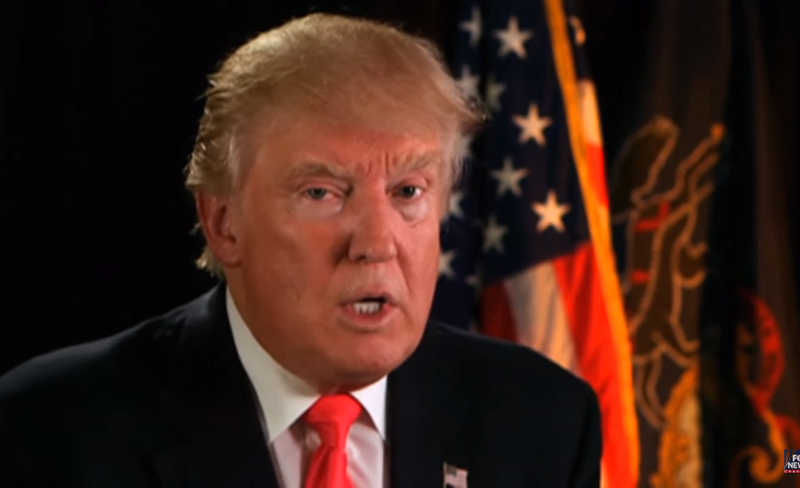Column: By playing the Glasswater Game, India will hedge its losses, and build up its equity in global opto-politics.
 The election of Donald Trump as 45th president of the United States is sending waves across communities and countries globally, and of course it is causing a churning inside America itself. The shape that is taken by the events and decisions as they unfold, shall be what shall be, but there is no denying that we all seem to be heading into a post-truth world.
The election of Donald Trump as 45th president of the United States is sending waves across communities and countries globally, and of course it is causing a churning inside America itself. The shape that is taken by the events and decisions as they unfold, shall be what shall be, but there is no denying that we all seem to be heading into a post-truth world.
Oxford Dictionary has helpfully selected “post-truth” as 2016’s international word of the year. It defines “post-truth” as “relating to or denoting circumstances in which objective facts are less influential in shaping public opinion than appeals to emotion and personal belief.” Washington Post, the grand dame of mainstream media, further embellishes by adding its interpretation to say that “in this case, the “post-” prefix doesn’t mean “after” so much as it implies an atmosphere in which a notion is irrelevant”.
This post-truth world is suddenly staring in the face of leaders, nations, and communities, who seem to be scrambling to adjust to a new norm that is emerging. In this post-truth era, which now is topped with the icing of a Trump administration taking the levers of power in the United States, many leaders, nations, and people are introspecting and also forecasting to make sense of the future and to formulate strategies for their own growth. The Trumpian communities are looking to consolidate and forward-implement their agenda, while the non-Trumpian communities are looking to salvage and re-invent themselves in a post-truth world. And then there are many communities and nations in between these two worlds.
This corner examines the opto-politics and international relations in this post-truth world (as opposed to the intra-national affairs inside each nation). On the global stage, the agenda is the same for all nations – protecting and advancing supreme and national self-interest in bilateral or multilateral relations and in global regimes. The agenda is of course heavily influenced by jobs, radical Islam and all other religious extremism, and the pursuit of a just global order.
Therefore, against the above backdrop, what may be some strategic steps that India could take to drive a win-win, and non-losing, non-zero-sum relationship with the United States? This corner lays out one strategic, and two creative, steps, that India must consider to take up in a world that is Trumpian and post-truth.
Business and Cutting-Deal Smarts
Firstly, India must be seen as an effective business-minded nation that has the audacity of global leadership that is muscular and thoughtful, and of cutting smart] deals. Trump has repeatedly emphasized that he takes pride in his deal-making, and the stronger the adversary, the more he enjoys wrestling with the adversary to extract a good deal for himself. During his campaign, he confidently predicted that he will be able to negotiate and crack muscular deals with China – thus making a strong partnership with China.
The moral is then clear – India must be a strong adversary – remember, not opponent, nor enemy – to the United States and negotiate, discuss with clear-cut positions of its own strength and capacity. A strong adversary begets respect and begets trust once a partnership is formed. In a post-truth world, India must display strength, determination, and agility to negotiate and engage with the United States, and rest of the world on matters of bilateral, multilateral, and global regimes. An image of a weak India, an India that does not get the knack of deal-making, of making offers and counter-offers, and of walking off the table if needed, will not be respected in a Trumpian world.
If India does not rise up to the art and skills of deal-making, not only will it end up on the short end of the stick, but also the United States would lose interest in India as a strong partner.
Imaginative Image of India
It is said that a post-truth world “denote(s) circumstances in which objective facts are less influential in shaping public opinion than appeals to emotion and personal belief”. Thus India should sharpen up its appeal as a nation, as a people, to attract emotions and resonate with the personal beliefs of nations and global communities, especially in and with the United States. India should boost its image in the United States to build up the support and goodwill of grassroots communities and people of the United States about India. This increased goodwill will be reflected in the decisions and direction of the leaders of the United States.
Objective facts, like exact GDP growth rates, and range of other economic and social measures will be less important. It is more or less understood that India will be one of the fastest, largest economies; and it is also more or less known about the shoddy metrics of India’s various parameters. Of course a continued emphasis on informing about objective facts will always be needed.
Looking up the definition of a “post-truth” world again, it becomes obvious that India will be able to significantly strengthen its partnership and image with the United States, if it widens and deepen its emotional, cultural, and people-to-people relations with people and communities of the United States. Plus an equal emphasis on sharing personal belief and values, philosophy, and world-view, has to be combined with the emotional-cultural awareness.
Thus, to bring the United States and India closer, the objective facts about the India growth story must be well advertised in the US, but what would bring India higher dividends would be its emphasis on emotions, values, and philosophy in its relations with the people of America.
The Glasswater Game
In this post-truth world, the ongoings and outcomes of US-China relations will have impact around the world, including for India. How smoothly, or with what irritants the negotiations proceed between a business-like Trump who is bent upon securing the deals for America that he wants, and a China that will be warily sparring, remains to be seen. In this milieu, India must play a game that this corner has developed, and monikered as the “Glasswater Game”.
Negotiations and face-offs between the United States and China will occur at various fora – bilaterals, multilateral, global regimes, during ad-hoc global or regional emergencies, and any new regional and global initiatives that Trump rolls out. Some of these summits would be purely US-China affairs, and many of these summits would be where India is also a participant, and also other nations.
In these various discussions and negotiations, India must consistently game to weave in, in-build and bring centrefront its world-view of a new world regime. And it must work hard during the background to these various summits to pre-include, inform and influence the United States of the pros and cons of the various decisions it may take with respect to China.
In a triangulated matrix of US-India-China, it should be well understood that some compacts sealed between China and the United States could spillover with either negative impact globally, regionally, or with respect to India, as viewed from the opto-politics of India.
By playing the Glasswater Game, India will hedge its losses, and build up its equity in global opto-politics.
A combination of business and cutting-deal smarts, an imaginative image of India, and the Glasswater Game shall make for a stronger US-India partnership, and a global partnership for progress and prosperity in a secure world. More, in next.
(Robinder Sachdev is the President of Imagindia Institute, an independent think tank and research center with a mission to promote the image and imagination of India.)



